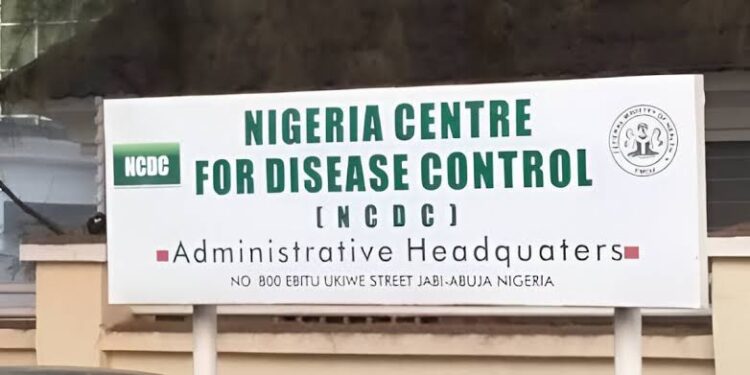There are 55 confirmed cases of monkeypox (also known as mpox) in Nigeria, according to the Nigeria Centre for Disease Control and Prevention (NCDC).
The centre announced this on its official website, stating that out of the 935 suspected cases spread throughout 39 local government areas in 21 states and the Federal Capital Territory (FCT), 55 cases were confirmed.
According to the agency, 70% of reported cases were male, while 30% were female. It also noted that no deaths had been linked to the illness thus far this year.
The age distribution of confirmed Mpox cases was as follows: 19 cases in years 0-10, 8 in ages 11-20, and 12 in ages 21-30.”Additionally, eight cases were recorded in ages 31-40, seven cases in ages 41-50, and one case in an individual aged 50 and above.

The NCDC listed the confirmed cases as eight from Enugu, six from Bayelsa, six from Akwa-Ibom, five from Cross River, three from Delta, three from Benue, and three from Plateau.
Others include Osun (two), Imo (two), FCT (two), Anambra (two), Rivers (two), and Abia (two), while Lagos, Kebbi, Nasarawa, Edo, Ebonyi, Zamfara, Oyo, Kaduna, and Niger each had one case.
According to the NCDC, since September 2017, 4,752 suspected cases have been reported from 36 states and the FCT, with 1,141 confirmed cases (24.0%) from 35 states and the FCT, resulting in 17 deaths. Males (~70%) are primarily impacted.
The Nigerian public health agency stated that the National Mpox Multi-Sectoral and Multi-Partner Emergency Operation Centre is still coordinating responses across the country.
Mpox is a viral disease produced by the monkeypox virus, comparable to smallpox but less severe. Symptoms include fever, rash, and swollen lymph nodes.
The disease can be transmitted from animals to humans as well as between humans by intimate contact, respiratory droplets, or contaminated objects.
Mpox was declared a global public health emergency by the World Health Organisation (WHO) in August.
The Africa Centre for Disease Control and Prevention also declared it a public health emergency of continental security on August 13. While DR Congo is at the epicentre of the outbreak, Mpox has been recorded in at least 13 African nations, including Guinea, which recently confirmed its first case.
The virus has also been found in Pakistan, the Philippines, Sweden, and Thailand.
Bottom Line
The fact that 70% of reported cases are male suggests that there may be social or behavioral factors contributing to the spread of the disease, and these patterns should be further investigated for targeted interventions.
Additionally, the absence of deaths so far this year is a positive indication that the disease is being managed effectively, but ongoing public health efforts are essential to prevent further transmission and reduce risks.
Mpox, although less severe than smallpox, can still be serious, and the WHO’s classification of it as a global public health emergency underscores the importance of proactive measures.
The international spread of the virus, with cases being recorded in countries outside Africa such as Pakistan, Sweden, and Thailand, further emphasizes the need for a coordinated global response.

















